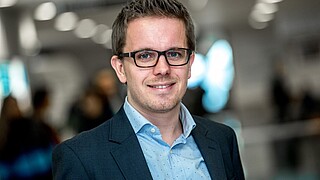Veni grants are awarded to promising researchers up to three years after completing their doctoral thesis, and can fund up to three years of work to develop ideas and gather data. The maximum grant is €250,000 per researcher.
The internet is making the social sciences faster and more open, explained Dr Paolacci. “I’m a fan and an early adopter of crowdsourcing as a data collection tool. But my previous research has also identified some unique threats to data validity, such as the presence of “professional participants”. While most crowdsourced participants are generally attentive and honest, the lack of control over the data collection process brings new and serious concerns. I’m thrilled that NWO recognised the importance of these challenges and decided to fund my future investigations into them,” he said. “It’s a great honour to receive this award.”
Collecting data
Dr Paolacci, part of the Department of Marketing Management at RSM, will scrutinise the ways in which data is collected from human participants. “Data collection across the social sciences is dramatically changing, moving progressively away from university laboratories and towards the internet. Online marketplaces offer researchers the opportunity to crowdsource data collection – to recruit and compensate people for participating in research studies,” he said.
Crowdsourcing research
“While this makes it cheaper and faster to reach a more demographically diverse sample of respondents, the lack of control in the recruitment and execution stages of data collections brings new challenges for data validity.” Dr Paolacci’s research will quantify and qualify these challenges, exploring ways for researchers to overcome them and produce more valid findings. His study will incorporate three subprojects, the results of the first contributing to the design of the next, and so on.
“My ultimate goal is to contribute to better science by improving the quality of online research,” he said.

